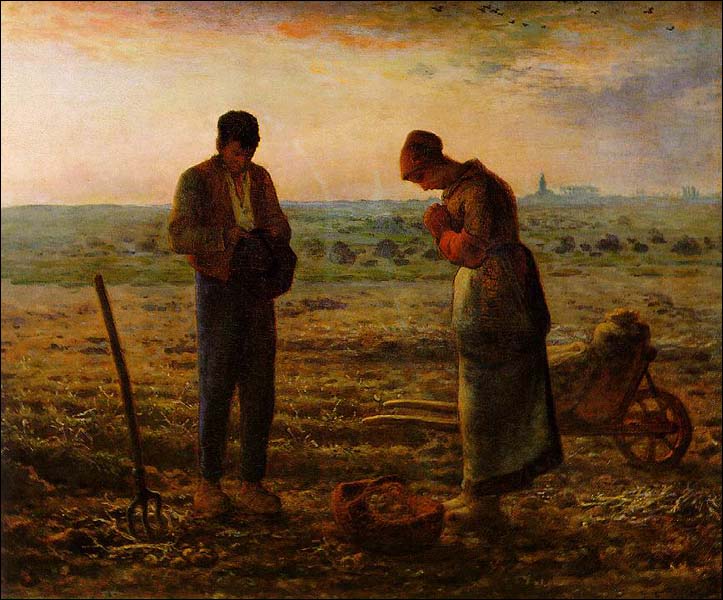Blog Post
State of the Culture: The Christian Minority
By Jonathon Van Maren
I’ve been saying for awhile that the fight over so-called “gay marriage” was not the “battle for marriage,” but rather the end game. Marriage was eroded by divorce, common-law relationships, and hook-up culture long before the gay community demanded that their relationships be recognized as marriages, too. The New York Post highlights the continuing dissolution of marriage in a stunning fashion:
There’s something going on with marriage in America. At a time when it’s available to so many, it appears to be taken seriously by so few.
Take Marnie Michaels, the willowy, statuesque musician played by Allison Williams in HBO’s hip series, “Girls.” As devoted viewers who watched Sunday’s episode are aware, Michaels has gone from single and dating to married, cheating and demanding a divorce in less than one season, treating marriage like it’s an exotic semester abroad.
Michaels isn’t the first “Girls” girl to try a marriage on for size. Back in Season 1, boozy, free-spirited Jessa Johansson met, married and divorced a rich — yet square — venture capitalist in less than a year. Three seasons later, Johansson is (finally) sober and “recycle dating” the ex of one of her best friends.
These women’s stories would probably be entertaining if they weren’t so downright depressing. For whether they call it a “starter” marriage, “beta” marriage or “test” marriage, the 25- to 35-year-old generation has a far more elastic definition of the concept of “forever.”
How elastic? A recent study found that 43 percent of millennials supported a form of marriage that allowed couples to easily split up after two years, while a full third were open to “marriage licenses” valid — like mortgages — for set periods of time. It’s an impressive figure, especially when you consider just a third of respondents still believe that marriage is “till death do us part.”
So what’s going on here? Have social media and dating apps killed off marriage? Or has digital culture — if not hook-up culture — so spoiled young people for choice that they’re simply unable to settle down? With same-sex marriage now legal, has making marriage more inclusive eroded its traditional sense of exclusivity? Or are millennials merely early-adopting a future where marriage is unnecessary?
Part of the problem is role models. Just 26 percent of millennials are married, according to a landmark Pew Center report, compared to 36 percent of Gen X-ers 20 years ago — and 48 percent of boomers back in 1980. Millennials are also among the least religious Americans ever — with a full third unaffiliated with any single faith.
In fact, a lack of faith is, perhaps, the most defining millennial characteristic: Just 19 percent of them believe that most people can be trusted. Unwilling (and probably unable) to rely on each other, millennials — like the “Girls” crew — are giving up marriage rather than giving it a chance.
And at what price? There are the economic costs — divorce, even with minimal assets, usually doesn’t come cheap. Then there’s the psychic toll of beta-testing marriage. For Michaels, this meant abandoning fidelity the first moment something — or someone — more appealing showed up. In her case, it was a former flame who’s devolved from a successful app developer to a grungy heroin addict — not that we’re judging!
What’s troubling about Michaels — and the generation she represents — isn’t that she broke her vows so easily (cheating is hardly age-specific). Rather, it’s the ease with which she broke her marriage — without fighting, without counseling and (most likely) without looking back. The real question is whether her decision will ultimately be without consequence.
Probably not.
Probably not, indeed.
****
Over in The Spectator, Tim Stanley warns that “British Christians must start to think and act like a minority.” The land of G.K. Chesterton, C.S. Lewis, and William Wilberforce is beginning to become a hostile place for those who still treasure the Common Book of Prayer:
Rights compete for privileged status in a liberal society. The right to redefine one’s gender, for instance, conflicts with a woman’s right to undress in a room reserved strictly for women. The right to speak one’s mind on campus comes up against the right of students to live free from unwelcome opinions. And the right to articulate a deeply held religious belief crashes headlong into the right of a whole smorgasbord of groups who don’t want to hear it.
Last year, a Christian bakery in Northern Ireland was fined for refusing to make a cake promoting gay marriage. The prosecution was backed by the Northern Ireland Equality Commission, which covered nearly £39,000 in legal fees. This story isn’t necessarily evidence of a conspiracy against true believers. It’s what happens when a society shrugs off its ancient cultural assumptions, embraces relativism, and invites people to sue their way to justice.
Christians have to accept that we can’t take Britain’s Christian identity for granted anymore. Church attendance is way down, multiculturalism is a reality, atheism is popular, and the establishment is almost antipathetic towards people of faith. While mainstream culture is prepared to accept faith as a vague and private matter, expressions of orthodox dogma are seen as warning signs of insanity – as demonstrated by reactions to BBC1’s appointment of a Creationist to present its morning show. Why Dan Walker’s private views generated such outrage is unclear. BBC Breakfast mostly presents items on celebrity weight loss and the Oscars. The day that it tackles Darwinian evolution is the day that it goes dangerously beyond its remit.
All of this is doubly irritating in an age in which horoscopes are widely read and a significant slice of the population thinks Earth has been visited by aliens. The human race is no less credulous than it once was. It’s just that its taste in the fantastic has moved on. So we now live in a post-Christian society, surrounded by the archaeology of an almost forgotten faith. One of the jobs of Christians in the next few decades will simply be to preserve – keep the churches open, keep the assemblies going, keep the Church of England’s role as the national church. As Hector says in The History Boys: ‘pass it on, boys, pass it on.’
But it’s not all doom and gloom. Britain has gone through periods of near-faithlessness before – and come out of them thanks to waves of mini-awakenings fired by popular zeal. In the mid-19th century, Anglo-Catholicism and non-conformism revived the spirit in urban centres. They also injected themselves into politics by fighting child labour and poverty. The idea that some separation of church and state exists in England is a recent, fatuous import from America: we still have an established church and policy has always been framed by religious viewpoints. The Labour Party was a movement dominated by Methodists and Catholics. The Anglicans were once called ‘the Tory Party at prayer’. In the arts, too, Christians need to be as visible as CS Lewis, GK Chesterton or Malcolm Muggeridge. Speak up, speak out. Let people know that you’re a believer…
Re-evangelisation of Britain, however, has to start with acceptance that Christianity is no longer in control of European society. Christians have to think and act like a minority. That means being as loud and righteous as other groups have been when pursuing their goals. Happily, legal funds now exist to defend people who are denied the right to wear a cross at work or refuse an unreasonable demand for customer service. We need to be more vocal about fighting for the freedom to preach in the street or to avoid participating in abortion. A fine is deeply irritating, imprisonment an injustice. But both might be blessings in disguise. If the cost of standing up for the tenets of the Christian faith is persecution then that’s the price that has to be paid – and it could stir the hearts of onlookers. Never forget that a martyr is a witness. And the Christian story required witnesses for it to be told.
Christians have to prove not only that they have a right to speak their mind but also that everyone else benefits from having a healthy religious culture. In the past few centuries, Christians have contributed towards the abolition of slavery, the clearing of slums, the fight against low wages and the resistance to totalitarianism. They still have many wonders to perform.
****
I know I rarely report good news in these weekly updates, but Maclean’s magazine published a fascinating article titled “The Science is In: God Is the Answer.” In it, they reveal the recent discovery by psychologists that religious young people are, by and large, far happier and safer than those from nonreligious families. For example:
In fact, Miller declares, spirituality, if properly fostered in children’s formative years, will pay off in spades in adolescence. An intensely felt, transcendental sense of a relationship with God, the universe, nature or whatever the individual identifies as his or her “higher power,” she found, is more protective than any other factor against the big three adolescent dangers. Spiritually connected teens are, remarkably, 60 per cent less likely to suffer from depression than adolescents who are not spiritually oriented. They’re 40 per cent less likely to abuse alcohol or other substances, and 80 per cent less likely to engage in unprotected sex. Spiritually oriented children, raised to not shy from hard questions or difficult situations, Miller points out, also tend to excel academically.
Considering that media outlets usually only cover religious communities in the wake of some scandal, this particular essay was a refreshing aberration.








